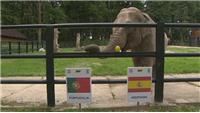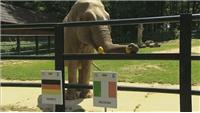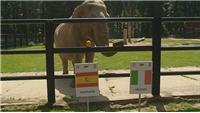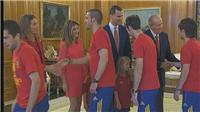
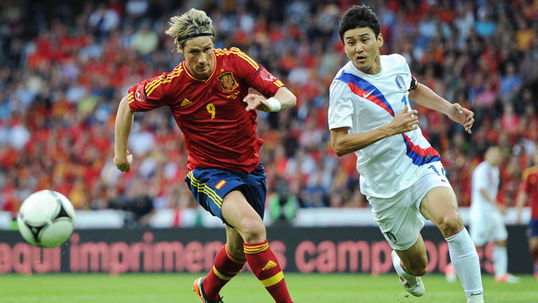
Spain head into Euro 2012 seeking to become the first back-to-back European champions.
For the Spaniards, a year in which they asserted their dominance over European football could naturally culminate with success in Poland and Ukraine. Having helped their respective clubs to the Barclays Premier League, La Liga, Europa League and Champions League titles, success has become addictive for the Spanish stars of the continent.
Juan Mata carried the creative burden of the Chelsea midfield and David Silva shone with his incisive passing for City while Fernando Llorente's sheer determination helped fire Athletic Bilbao to the Europa League final. Iker Casillas and Gerard Pique marshalled their defence superbly, allowing arch-rivals Barcelona and Real Madrid to register a staggering 60 victories between them in La Liga.
Such is the strength in depth of the Spanish contingent that even their backup players would command a regular starting berth for most top European sides. To prove the point, Valencia's Jordi Alba is being tipped to make a move abroad while Los Rojiblancos have been doing their best to fend off interest in 23-year-old defensive stalwart Javi Martinez.
The Spaniards shone on the international stage as well, ending Euro 2012 qualification as one of only two (the other being Germany) unbeaten sides.
Despite the perceived antagonism between some players - notably those from Real Madrid and Barcelona - Spain's Euro 2008 and 2010 FIFA World Cup wins proved that club allegiances are put to one side when national pride is at stake.
It is natural then that they enter the tournament as favourites.
Del Bosque seeks to complete his collection
In Vicente del Bosque, Spain have a tactician heralded as one of the very best. A triumph in Poland and Ukraine would make him only the second manager after West Germany's Helmut Schoen to win both the World Cup and European Championships.
Del Bosque has been able to effectively synthesise two different schools of thought from La Liga. He regularly observed Jose Mourinho teaching his side how to blitz clear within a moment's notice and also took notes as former Barca boss Pep Guardiola instructed his players to keep the ball for as long as required until a suitable opportunity presented itself.
The World Cup win in South Africa was a combination of defensive discipline and the Barca fondness for tiki-taka football. But over the past two years, del Bosque has adjusted the system to incorporate more direct play with Silva and Mata the chief beneficiaries.
With 19 players from the World Cup still in the prime of their career and part of the Euro squad, he has also been blessed with continuity, a rare feature in international football.
"The most important thing is the players' talent, but there is also the question of organising the team. That equilibrium is key - talent and order," Del Bosque said.
"I like to think that in 2012 that I did better job than in 2008. That every day I learn more."
"My work has improved."
Chinks in the armour
But all is not perfect in the Spanish camp. They have lost to the likes of Italy, Argentina and England in recent friendlies.
With the absence of Barca captain Carles Puyol, the central defensive pairing of Pique and Sergio Ramos lacks the presence of a primarily defensive-minded stopper and the two could be caught on the break as their penchant for joining the attack could leave the team with a man short at the back during crucial moments.
Chelsea and England demonstrated earlier in the year how "total defence" can stultify possession-based football and the direct running of the Bayern Munich wingers exposed the defensive frailties of Real's fullbacks as well.
In Juanfran and Alvaro Arbeloa, the right side of defence looks especially weak as these two players are not nearly as technically gifted as their team-mates and may not be able to preserve the high line often employed by the Spanish defence.
Add to this the fact that star striker David Villa has been sidelined with a long-term injury and Spain will have to depend on a frontline made up of the inconsistent Fernando Torres, the untested Llorente, the forward-turned-winger in Pedro and Sevilla's Alvaro Negredo.
Goals are not guaranteed from the quartet and the other European sides will repeat the mistakes of the 2010 World Cup when they gave Xavi, Andres Iniesta and Cesc Fabregas the licence to carry out their one-touch passing game.
Villa's absence especially could be crucial. Even Barcelona struggled without their striker in the previous season, winning only three league games in the two months after the former Valencia man's injury. Torres is probably in the same class as Villa, but has yet to convince observers that he is back to his lethal best despite an encouraging end to the season.
Del Bosque admitted Villa would be missed, saying: "David Villa's role in the last tournament was priceless. He's been our top scorer for the last few years so it's a very sensitive loss.
"He has made a very kind gesture in telling us he is not ready to come and play, but without Villa, we are missing a very important player.
"He has been vital in winning the Euros and the World Cup so it isn't strange that we were hoping we would make it."
A possible path to the final
But still, the Spanish have it in them to at least chart a way to the semi-final.
In Group C, Italy will pose the strongest challenge. Should they pass the test, Ireland and Croatia should not pose much of a problem and reaching the quarter-final should be a given.
In the quarter-final, they could face the English or the French depending on which of the two sides across the English channel finish second in Group D. After observing the Champions League exits of Real and Barca, Del Bosque needs to be prepared with a plan of action against the defensive tactics that will likely be employed by these two sides.
But it is the Dutch and the Germans that they will need to fear the most, as both boast of talented players who can undo any team on their day.
Rewriting history
With an expectant fanbase watching on, the Iberian side know that a successful title defence will be difficult, although not impossible. They are on the cusp of making history with only the Germans having come this close to winning three trophies in six years - winning the 1988 Euro Cup and the 1990 World Cup before falling at the last hurdle to Denmark in the 1992 Euro Cup final.
Spain's first game on June 10 will give an indication of the likelihood of achieving such a momentous feat. Should they go on and win the tournament, they will go down in history as the best European side to have ever graced the football pitch.
- Arbeloa: Spain must never change their style
- Wedding bells turn Iniesta's legs to jelly
- Pele: Brazil's 1970 World Cup winners better than Spain
- Pirlo: Only Spain are superior to Italy
- Spain disproved boring tag with empathic final win, insists Alonso
- Fernando Torres revels in Euro 2012 crown
- Italy can reach the final at World Cup 2014
- Johan Cruyff: I enjoyed Italy and I'm a big fan of Del Bosque's Spain
- De Gea & Mata named in Olympics squad
- Shevchenko: Euro 2012 was a success for Ukraine
Hot News
- Funny Balotelli!
- Spanish fans celebrate Euro Cup win
- That's German WAGS!
- The sexy female fans in Euro 2012
- Euro 2012: Spain fans celebrate victory
- Spain vs Italy in clash of the Euro WAGs
- Euro 2012 Final - Spain 4 : 0 Italy, Part 2
- Germany knocked out by Italy
- Natalia Siwiec blasts Sol and the BBC
- Coleen Rooney reveals her bikini body secrets
- Italy's fans celebrated wildly
- Euro 2012 Final - Spain 4 : 0 Italy, Part 1
| Rank | Team | W/D/L | Pts |
|---|
Cities & Stadiums
The Top 3 Teams of Previous Tournaments
| Year | Winners | Runner-up | Third place |
|---|---|---|---|
| 2008 | Spain | Germany | Russia / Turkey |
| 2004 | Greece | Portugal | Netherlands / Czech Republic |
| 2000 | France | Italy | Netherlands / Portugal |
| 1996 | Germany | Czech Republic | France / England |
| 1992 | Denmark | Germany | Netherlands / Sweden |
| 1988 | Netherlands | Soviet Union | Italy / West Germany |
| 1984 | France | Spain | Denmark / Portugal |
| 1980 | West Germany | Belgium | Czechoslovakia |
| 1976 | Czechoslovakia | West Germany | Netherlands |
| 1972 | West Germany | Soviet Union | Belgium |
| 1968 | Italy | Yugoslavia | England |
| 1964 | Spain | Soviet Union | Hungary |
| 1960 | Soviet Union | Yugoslavia | Czechoslovakia |

